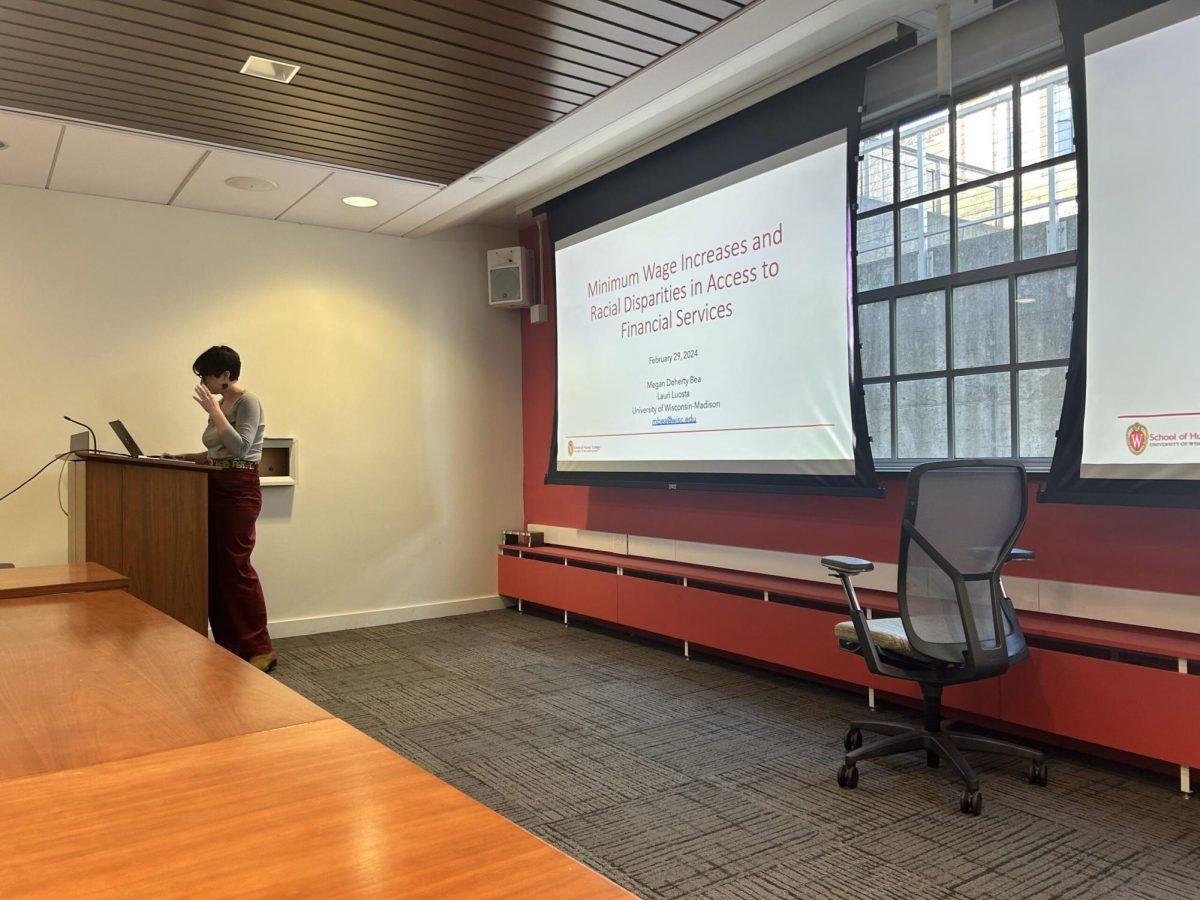Assistant professor of consumer science Megan Doherty Bea headlined a Feb. 29 seminar as part of a household finance series through the University of Wisconsin School of Human Ecology. The seminar reviewed a three-year-long research project Bea conducted with associates.
The research project examined how minimum wage policies may reduce racial disparities and access to financial services. Results revealed that increasing the minimum wage would create more engagement with banks and reduce reliance on alternative financial service providers.
Alternative financial services, such as check-cashing outlets, allow individuals to access credit they would not have access to through traditional banks, according to the Federal Deposit Insurance Corporation. AFS are most often used by individuals from low-income backgrounds.
As a market-oriented society, it is increasingly important for citizens to engage in financial services, such as banks and credit unions, to acquire “full citizenship,” Bea said.
“There’s this spillover on credit scores mattering for other aspects of your life and not all financial services provide credit-building benefits,” Bea said. “They’re not always helping promote financial well-being and financial security.”
UW alumni earns early career award for contributions to Latinx higher education
For example, employers often look at credit scores before people start jobs and landlords may use them to approve rental applications, Bea said.
But, not all individuals have access to banks and credit unions and therefore turn to AFS, which do not build credit. As a result, reliance on AFS can impact long-term financial well-being and economic goals, Bea said.
“They [AFS] are associated with increased financial hardship, particularly for borrowers who repeatedly borrow payday loans,” Bea said.
In the United States, 19% of families are underbanked and 5% of families have no engagement with banking services, Bea said. Rates are higher in urban areas where 10% of individuals are unbanked.
Black and Latinx communities use more AFS on average, which has long-term impacts on financial wellbeing, according to Bea.
“There’s work that shows that sustained racial discrimination by banks historically has resulted in branches being predominantly in whiter communities,” Bea said. “AFS had responded to this by opening Black and Latinx communities at disproportionate rates.”
About 50% of individuals who do not use traditional banking services said it is because they do not have enough money to maintain the minimum account balance and fees can be too high or unpredictable, Bea said.
The study found increasing the minimum wage will reduce the reliance on AFS because financial services will be more affordable for individuals, Bea said. Additionally, it may lead to more bank accessibility in communities who are disproportionately targeted by AFS, according to Bea.
The study is currently in the final stages and will be published spring 2024.


















